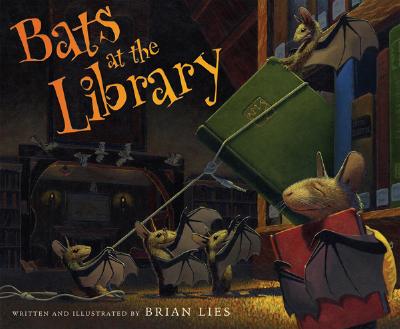Monthly Archives: October 2013
Things We Like: Getting Primed For A Better Night’s Sleep

Post by Kyle St. Romain.
Following this month’s theme of sleep studies, I have another bit of research that may help you sleep better. In a study titled, the effect of subliminal priming on sleep duration, which can be found online here, the authors found that subliminal exposure to certain words before going to sleep can improve the quality and duration of our sleep. The Boston Globe goes so far as to call it “subliminal Ambien.” To better understand how this works, we first need to understand a concept in psychology known as “priming.”
A simply way to describe priming is “that for a period of time after a word or other perceptual object is presented, less neural activity is required to process that same word of object.” In other words, repeated exposure to certain words or phrases makes it easier for your brain to associate them with a specific memory. As it relates to this study, priming your brain with sleepy word with the objective of getting to sleep faster is known as “goal-priming.” Okay, so how does it work? And more importantly, how can I prime myself to get to sleep faster?
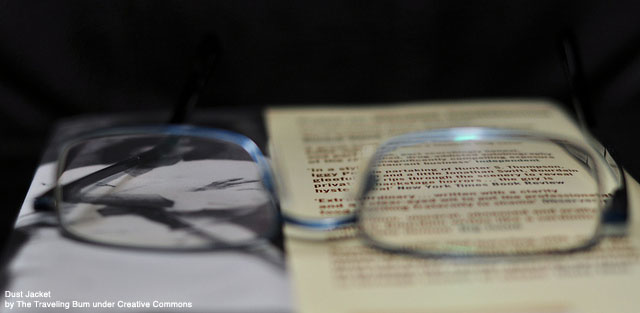
The author of this study has stated that this type of “goal-priming” can be achieved by placing sticky notes or index cards with slumber-centric words like “calm,” “rest,” and “drift away” throughout your bedroom. So much so that the participants who were exposed to these sleepy words slept 47 percent longer and had lower heart rates than those who were exposed to “neutral” words. The study also found that the effects of subliminal priming are greater among participants who had trouble sleeping, suggesting that exposure to these subconscious cues may be a cost-effective treatment to help people with sleep problems. This may also help explain why bedtime stories are so effective for getting your kids to go to sleep.
However, this sort of goal-priming for better sleep is somewhat controversial, as other studies have been unable to replicate the results. Does it work, or not? We’ll let you be the judge. For me, it’s worth a try.
Breakfast in Bed: Pumpkin Cream Crêpes

Post by Alison Hein.
Each Halloween, I like to create a festive, seasonal breakfast recipe. This year, I went with pumpkin crêpes. The bit of pumpkin purée in the batter adds depth, and when cooked, turns the crêpe a lovely golden orange color. The cream cheese-based filling is sweet and flavored with autumn pie spices of cinnamon, ginger and cloves.
Add a dollop of whipped cream to your crêpes for an over-the-top presentation that will delight the eyes as well as the palate. You can make your own, or do what I do and purchase a can of lightly sweetened real whipped cream.
If you like, mix up and refrigerate the filling and batter the night before Halloween. In the morning, fire up the stove and let the batter come to room temperature. Then serve your loved ones a trick-or-treat breakfast in bed that will rival any candy haul.
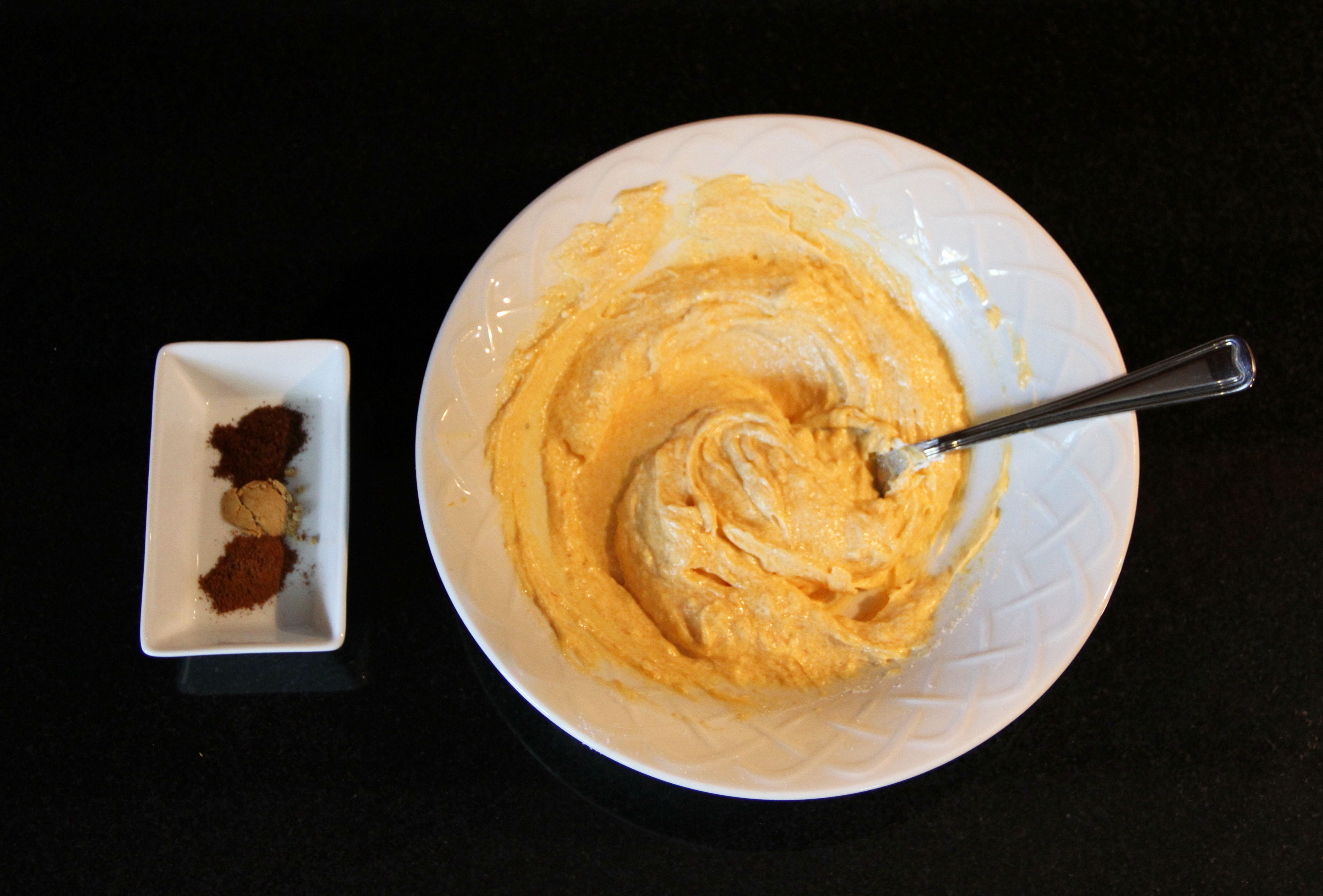
Happy Halloween!
Filling
¼ cup pumpkin purée (fresh or canned)
6 ounces whipped cream cheese
4 tablespoons sugar
¼ teaspoon cinnamon
¼ teaspoon ginger
¼ teaspoon cloves
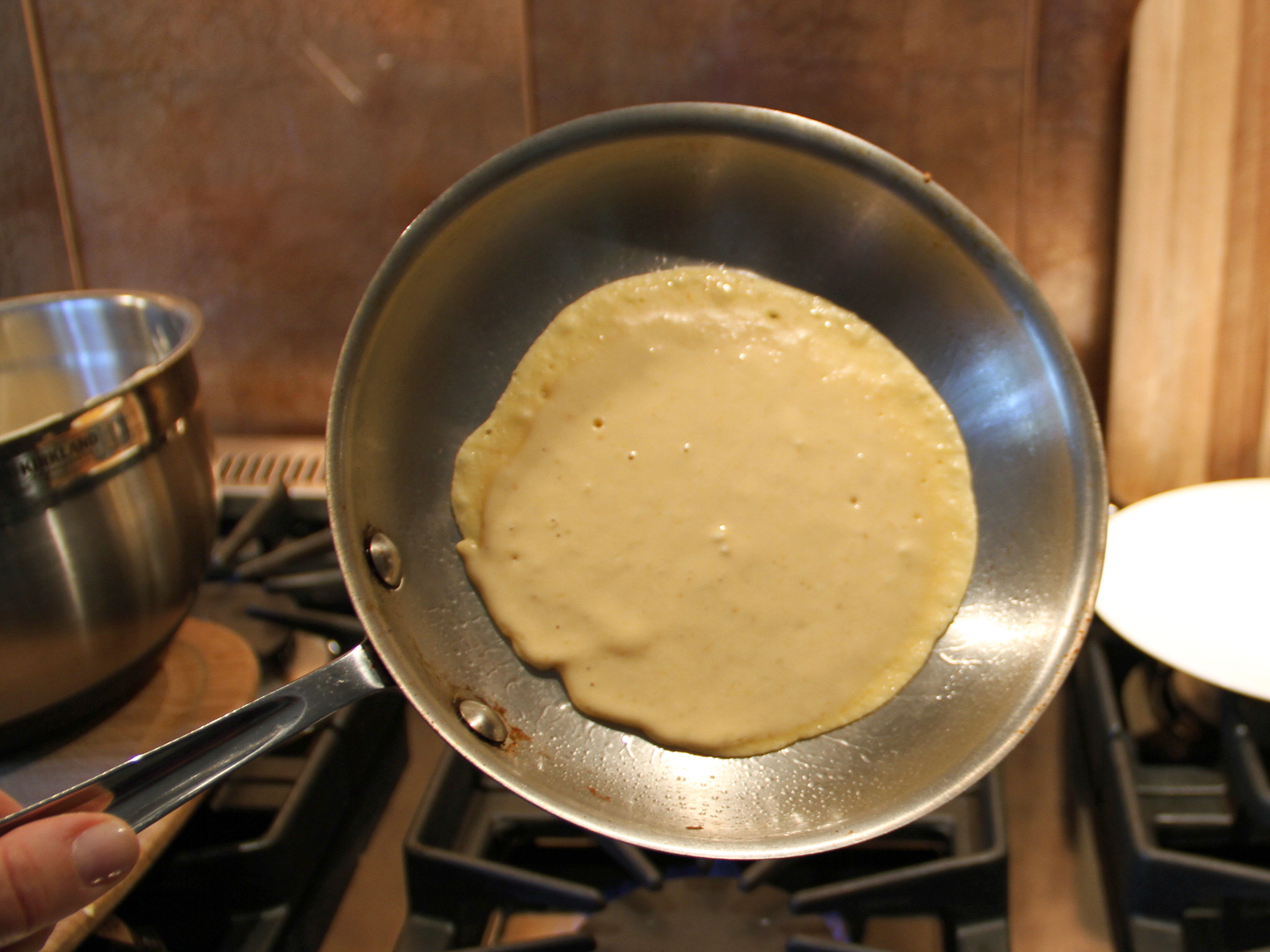
Preparation
Mix all ingredients together. Set aside until ready to assemble crêpes.
Crêpes
1 cup flour
¼ teaspoon salt
1 cup milk
1 egg
¼ cup pumpkin purée
2 – 3 tablespoons vegetable oil
Whipped cream (optional)
Dash of cinnamon, for garnish
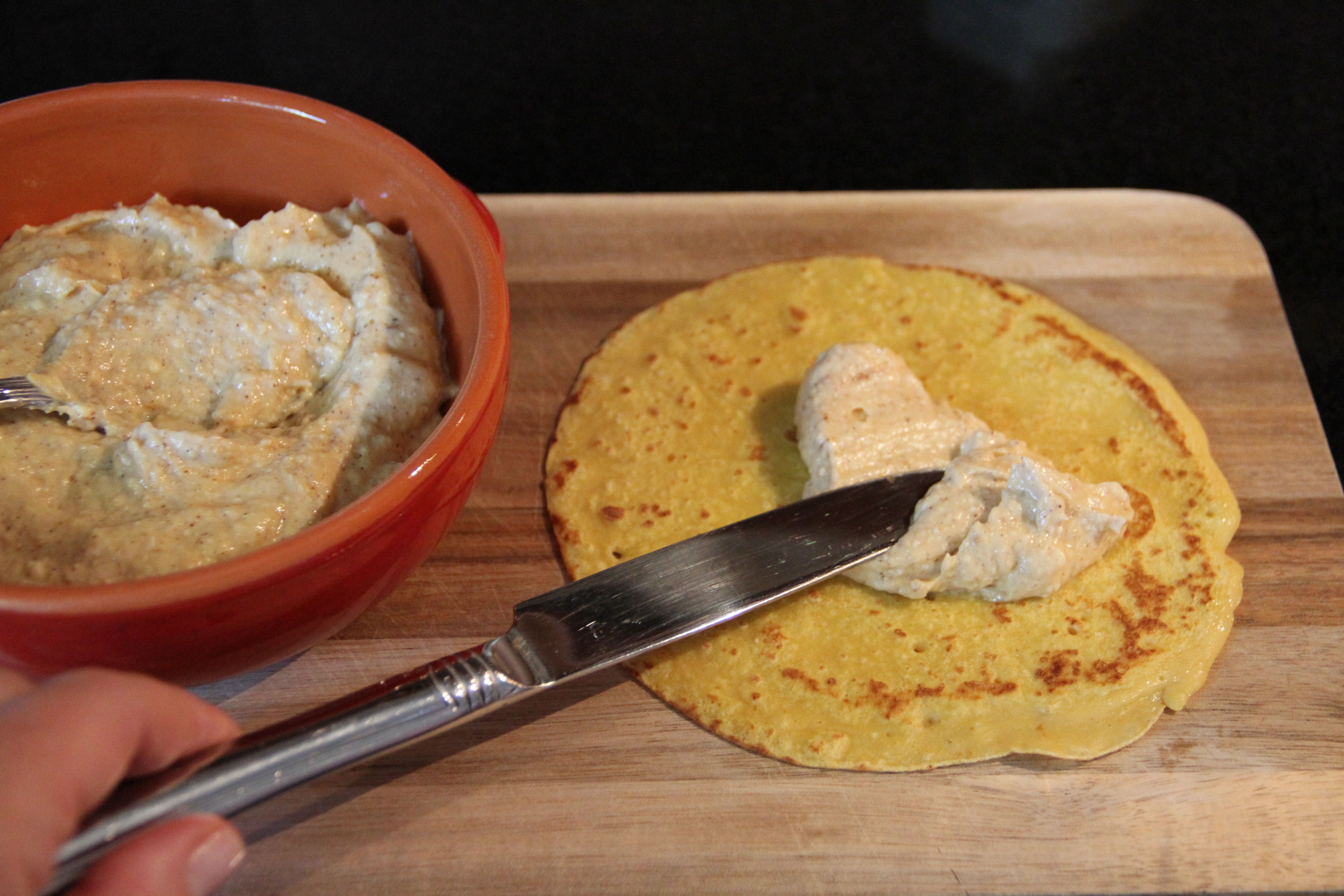
Preparation
In large bowl, mix together flour and salt. Whisk in milk, egg and pumpkin purée until batter is thick and smooth. Let batter rest a few minutes before cooking.
Heat about 1 teaspoon oil in heavy 6-inch pan over medium heat. When hot, but not smoking, add ¼ cupful of batter to pan, swirling to cover bottom. Cook crêpe 1 to 2 minutes until cooked through and lightly browned, flipping once. Keep warm while cooking remaining crêpes, monitoring heat and adding oil as necessary. Place a sheet of waxed paper between cooked crêpes, if you like.
Place crêpes on work area. Spread with about 1 tablespoon of filling and roll up. Top with whipped cream, if you like, and a sprinkle of cinnamon.
Makes 6 to 7 crêpes.

Things We Like: Spring Cleaning For Your Brain While You Sleep

Post by Kyle St. Romain.
Last week we discussed how sleeping on a problem can boost your creative problem solving abilities — specifically, rapid eye movement (REM) sleep. While I was researching that article, I came across another interesting study that I want to share with you.
The study up for discussion today is titled, Sleep Drives Metabolite Clearance from the Adult Brain. In a nutshell, the study found that your body rids the brain of toxic metabolic waste while you sleep. Yes, your brain needs to be cleaned with some regularity — like every day.

When we sleep, the brain cells shrink to facilitate the circulation of a special type of brain fluid that actually washes away the gunk and grime that accumulates between brain cells throughout the day. When we don’t get enough sleep (read: the body doesn’t have a chance to clean the brain) brain function is impaired and neural pathways are destroyed. The process is likened to “a dishwasher…. pumping fluid into the brain and removing fluid from the brain in a very rapid pace” according to Dr. Maiken Nedergaard who coauthored the study.
In addition to the temporary cognitive impairment (the brain fog you experience after a restless night), a prolonged lack of sleep is also thought to be a contributing factor to a number of permanent neurodegenerative problems, including Alzheimer’s disease. In fact, the authors of the study speculate that we may even be able to control sleep in a way that helps prevent Alzheimer’s and other diseases associated with dementia. The varying rates that our brains accumulate waste may also be one of the reasons why some people need more sleep than others to feel rested. In other words, our bodies tells us when it’s time to take out the trash, and how long it’s going to need; a message that shouldn’t be ignored.
However, lack of sleep alone does not paint the entire picture. Another related study believes that some people may have a faulty glymphatic system (the brain’s equivalent of a lymphatic system). And if your body doesn’t have the proper facilities to remove waste from the brain, all the sleep in the world won’t help.
So, until these doctors and scientists figure out how to diagnose/treat a faulty glymph system, your best bet to maintaining a healthy brain is to be sure you’re getting enough sleep!
Movies in Bed: Beastmaster

Post by Mark T. Locker
A quiet evening at home with friends. Nothing much to do. Full of food and looking for something—ANYthing—to watch. Oh, the anticipation as someone, in a fit of inspiration, rummages through his bag and pulls out a mystery DVD. Within moments you know exactly what kind of movie this is going to be: part Conan the Barbarian part Krull. Enter the Beastmaster, 1982. Via vague mystical means the baby Dar is taken from his mother’s womb and given birth to by a cow. Naturally, he develops a unique ability to communicate with animals. Even the—what are those?—giant bat people things have a deep respect for him. On his journey to…do whatever he is doing, he meets a lot of people with single-syllable names: Maax, Seth. Tal, Zed, and acquires a menagerie of helpful animal friends.
If you like lots of stone structures, lots of dust and fire, then this is the movie for you. If you like saying, “What the heck is going on???”, if you like movies that keep going long after you think it should have ended: Beastmaster. If you like loincloths, fighting with big sticks and sad tigers dyed black, I have your Friday night entertainment right here.

